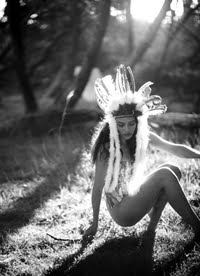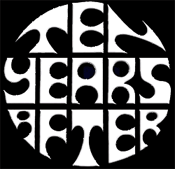
Quicksilver Messenger Service is an American psychedelic rock band, formed in 1965 in San Francisco and considered to be a part of the city's psychedelic scene. Essentially a jam band, Quicksilver Messenger Service gained wide popularity in the Bay Area and with psychedelic rock enthusiasts around the globe. Many of their albums ranked in the top 30 of the Billboard Pop charts. Though not ultimately as popular as contemporaries Jefferson Airplane and the Grateful Dead, the band was integral to the beginnings of their genre. With their jazz and classical influences, as well as a strong folk background, the band attempted to create a sound that was individual and innovative. Member Dino Valente pulled heavily from musical influences learned during the folk revival of his formative musical years. The style he developed from these sources is evident in Quicksilver Messenger Service's swung rhythms and twanging guitar sounds. After many years, the band has attempted to reform despite the deaths of band members. With the modest success of these ventures, many members have also attempted solo careers. Among these is Gary Duncan, former guitarist of Quicksilver Messenger Service. He has had a prolific musical career after parting ways with the group.
The original band members were John Cipollina (guitar), Gary Duncan (guitar, vocals), David Freiberg (bass guitar, vocals and viola), Greg Elmore (drums), and Jim Murray (vocals, guitar and harmonica), though Murray left before the band recorded.
There is some confusion as to the real origins of the group. According to John Cipollina:
“It was Valente who organized the group. I can remember everything Dino said. We were all going to have wireless guitars. We were going to have leather jackets made with hooks that we could hook these wireless instruments right into. And we were gonna have these chicks, backup rhythm sections that were gonna dress like American Indians with real short little dresses on and they were gonna have tambourines and the clappers in the tambourines were going to be silver coins. And I'm sitting there going, 'This guy is gonna happen and we're gonna set the world on its ear.”
The next day, Valente was arrested for possession of marijuana, and spent the better part of the next two years in jail. But Gary Duncan notes:
“That’s the story Cipollina told everybody. But according to Dino, that wasn’t the case at all. When he’d been looking for a band, he’d talked to Cipollina, and everybody somehow put two and two together. He actually lived with us when he got out of prison, and while we played some music together and wrote songs, he had no interest in playing in Quicksilver; he wanted to start his own career. Well, when his own career didn’t do so well, he had more interest in playing in Quicksilver!.”
Whether Quicksilver Messenger Service was what Valente had in mind, it appears from Duncan's recollections that he had at least talked with Cipollina about forming a band; Cipollina remembered that:
“I was recommended to Dino, probably because I was the only guy playing an electric guitar, let alone lead, at the time ... We talked about rehearsing one night and planned to rehearse the following night but it never happened. The next day Dino got busted.”
At the same time, David Freiberg, a folk-guitarist friend of Valente's, was recruited to the group. He had been in a band with Paul Kantner and David Crosby previously, but had just been released from jail. "We were to take care of this guy Freiberg", Cipollina recalled, and though they had never met before, Freiberg was integrated into the group. The band also added Skip Spence on guitar and began to rehearse at Marty Balin's club, the Matrix. Balin, in search of a drummer for the band he was organizing, soon to be called Jefferson Airplane, convinced Spence to switch instruments and groups.
To make up for his theft of Spence, Balin suggested that they contact drummer Greg Elmore and guitarist-singer Gary Duncan, who had played together in a group called The Brogues. This new version of the band had its first paying performance in December 1965, playing for the Christmas party of the comedy troupe “The Committee”.
It was a band without a name, Cipollina recalled:
“Jim Murray and David Freiberg came up with the name. Me and Freiberg were born on the same day, and Gary and Greg were born on the same day, we were all Virgos and Murray was a Gemini. And Virgos and Geminis are all ruled by the planet Mercury. Another name for Mercury is Quicksilver. And then, Quicksilver is the messenger of the Gods, and Virgo is the servant, so Freiberg says 'Oh, Quicksilver Messenger Service'.”
Having parted company with Murray, the band began a period of heavy touring on the West Coast of the United States. They refrained from signing a record deal at the time but eventually signed to Capitol Records in 1967. Capitol had failed to sign a San Francisco “hippie” band during the first flurry of record company interest and, consequently, Quicksilver Messenger Service managed to negotiate a better deal than many of their peers. At the same time, Capitol signed the Steve Miller Band, with whom Quicksilver Messenger Service had appeared on the movie and soundtrack album Revolution, together with Mother Earth.
Quicksilver Messenger Service released their eponymous debut album in 1968, followed by Happy Trails the following year. These two albums define a classic period in their career and are most strongly associated with their unique sound, emphasizing extended arrangements. Cipollina's highly melodic, individualistic lead guitar style, combined with Gary Duncan's driving guitar work, feature a clear jazz sound.
Archetypal Quicksilver Messenger Service songs include an elongated, multiply re-titled suite of Bo Diddley's "Who Do You Love?". This cover incorporates the classic “Bo Diddley rhythm” and evokes images of machismo and connects the listener with the history of Bo Diddley's music as well.
Duncan left the group after the recording of Happy Trails. "Well, let's put it this way," he reminisces 18 years later, "at the end of 1968, I was pretty burned out. We'd been on the road for, really, the first time in our lives. I just left for a year. I didn't want to have anything to do with music at all. And I left for a year and rode motorcycles and lived in New York and L.A. and just kind of went crazy for about a year."
Freiberg later recalled that "the engine" of the band had been removed. Nevertheless, Duncan was replaced by the English piano journeyman Nicky Hopkins, who had played on albums by The Rolling Stones, The Who and Steve Miller, among many others. This version of the group released 1969's Shady Grove, dominated by Hopkins' virtuoso piano boogie.
Bio from unknown source
QUICKILVER MESSENGER SERVICE
FILLMORE AUDITORIUM,
SAN FRANCISCO,CALIFORNIA,USA
NOVEMBER 5,1966
Disc 1
01. DINO'S SONG
02. HAIR LIKE SUNSHINE
03. I HEAR YOU KNOCKIN'
04. BABE I'M GONNA LEAVE YOU
05. SMOKESTACK LIGHTNING
06. IF YOU LIVE
07. ALL NIGHT WORKER
Disc 2
01. GOT MY MOJO WORKIN'
02. YOU DON'T LOVE ME
03. SUZY Q
04. HOOCHIE COOCHIE MAN
05. BABE I'M GONNA LEAVE YOU
06. GOLD AND SILVER
07. STAND BY ME
08. PRIDE OF MAN
Bootleg Recording























































































2 comments:
quick sliver band all time with me go's back looking to hear this lp. thank you for your posting of this great band.
I had a reader proclaim this as a Quicksilver Advent Calendar Nice thought I guess it really is
and hope you all have a great Christmas
Post a Comment